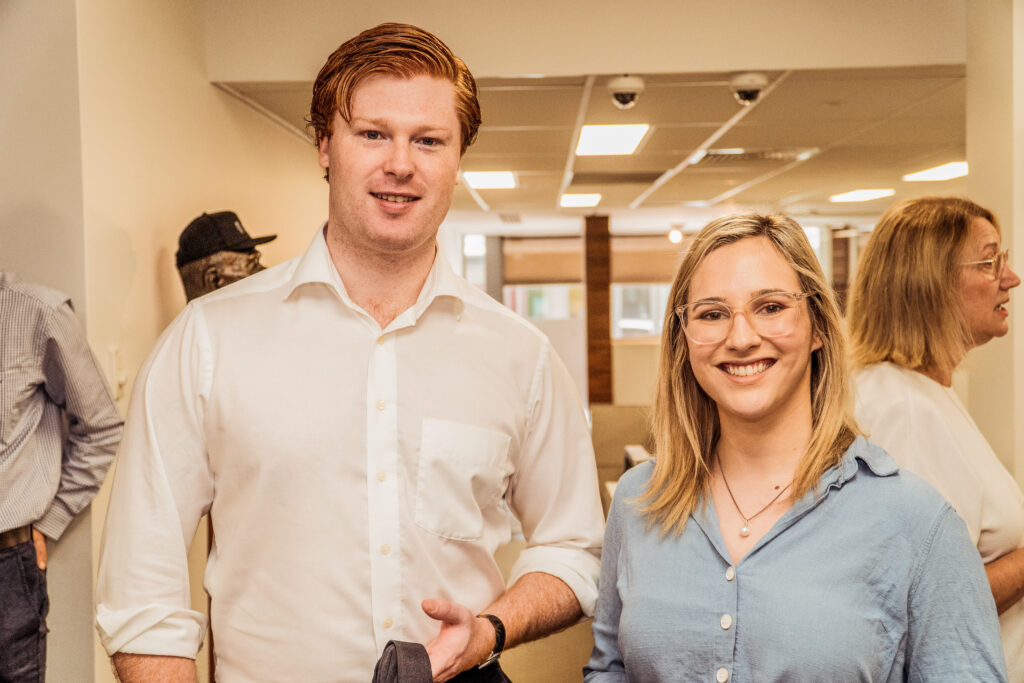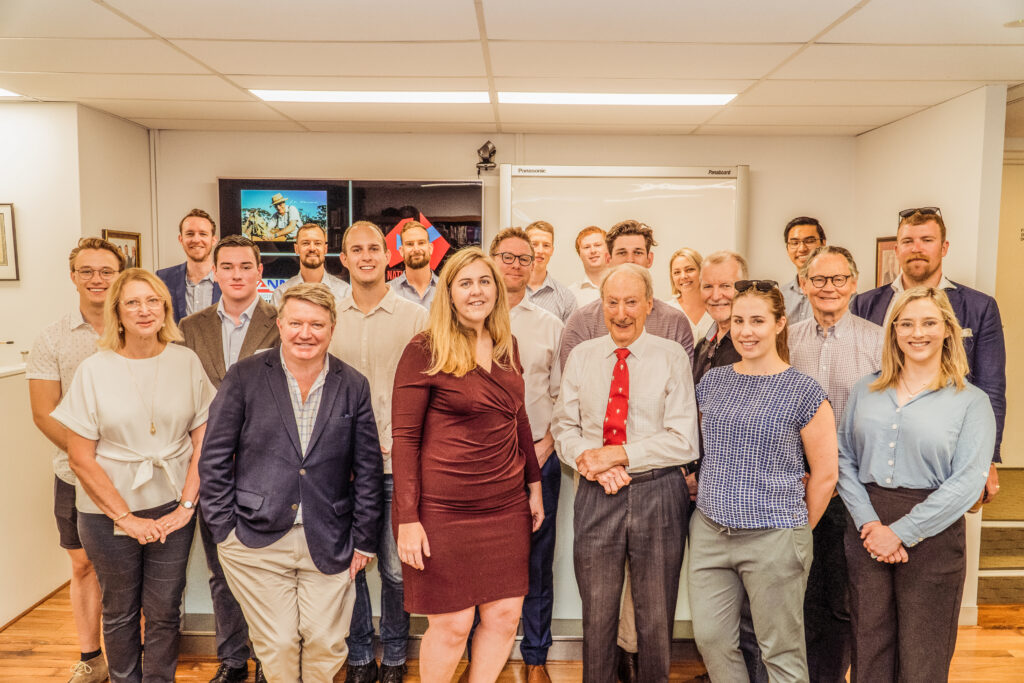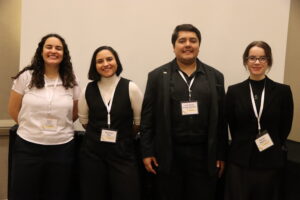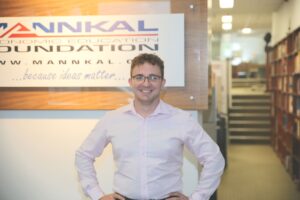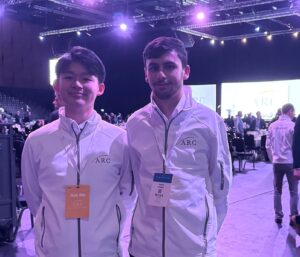Mates for Mining
On Friday November 20, 2020, Mannkal hosted the fast-growing “Mates for Mining” morning tea.
This simple idea is to recognise those in the sector, especially those who are literally on the coal face.
Nearly everyone attending had a connection to mining and Mannkal. This included some of our alumni who are in project management, technical and design roles. We were fortunate to hear from Ms Tiggy Rogers, from Roy Hill, as well as Ron Manners, Mannkal founder and chairman. Extracts from their speeches are included below.
As everyone involved in primary resources understands, reflection is a rare luxury. Be it finishing drafting a mob of sheep, or completing a haul truck major service, attention immediately shifts to the next mob and the next oil change.
As much as we rush and keep focused on the job, we often neglect successes and those involved doing the work. It is a fantastic story of resilience, innovation, and the future which must be told.
We are increasingly seeing urban centres criticise the sector which literally feeds and houses them. If they happen to be employed by the government, they are also partially funded by the proceeds of mining royalties.
Why do we then let these people define the sector and condemn its very existence?
Mates for Mining is a rallying point for those involved to start to frame the debate. It is also why, during 2021, I will be working on a related project to highlight and capture the experiences of Western Australia’s great pioneers and entrepreneurs. Their stories and struggles will be captured and told. Many of these brave individuals come from the resources sector, and too few students and university graduates know their names or what they achieved.
Mannkal is already working to address the gaps in learning. In our award-winning Leadership Development Program, we incorporate free market ideas with entrepreneurship training and exposure to the mining sector. In January 2021 we will hold our first ever leadership camp. We will be learning from of some of the best free market leaders in the state in a residential component at St Georges College, UWA, visiting the Roy Hill Operations Centre at Perth Airport and concluding the camp by travelling to Kalgoorlie to observe a functioning mine. A graduating LDP scholar, Shane Herbst, reflects on why this type of hands on learning is critical below.
I could write much more about the positive impact that natural resources have had on the development of Western Australia starting with sandalwood, whale oil, wheat, and sheep, followed by iron ore and natural gas. Similarly, there is much of award-winning historian Geoffrey Blainey’s writing on mining companies which could be used in classrooms and taught to students.
As a sector and as leaders of the free market movement, we need to start writing histories and framing the debate. I am pleased that Mates for Mining will become a regular celebration in our annual calendar and look forward to seeing many Mannkal supporters at an even larger event in 2021.
Andrew Pickford
Executive Director, Mannkal Economic Education Foundation
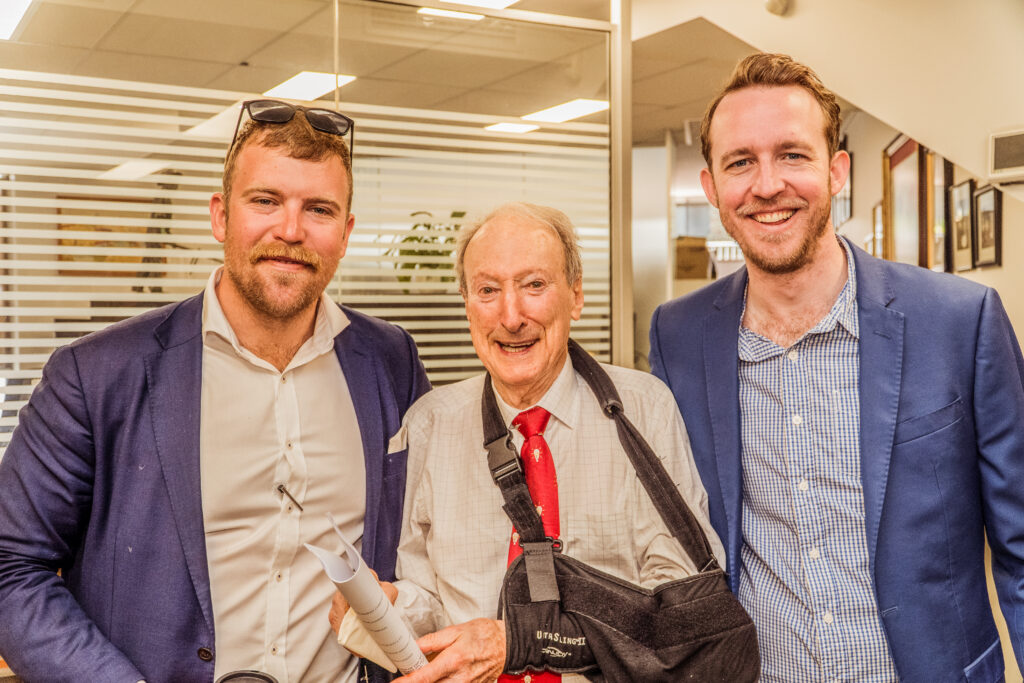
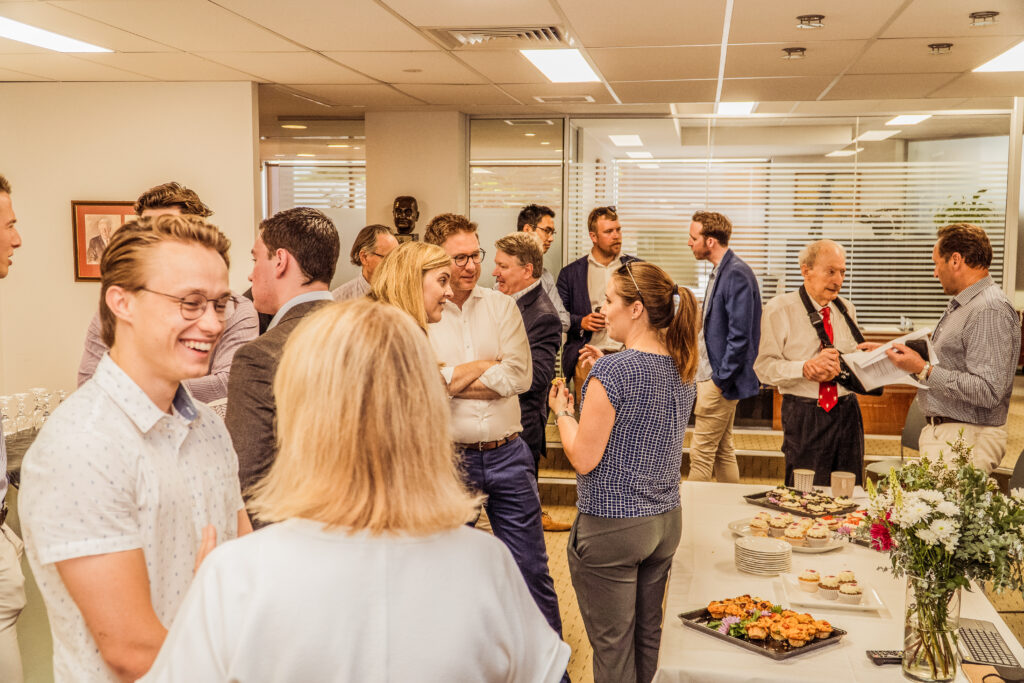
Reflections on a lifetime in the mining sector
I often remind people that the industry of mining exploration and production is the most creative industry in the world. We often forget this. It is true because you start by going out-back where there is nothing.
The terrain is harsh and even the trees do not grow in areas like Laverton or the back of Newman. However, despite this, the mining industry combines human ingenuity, capital, and science to gather the necessary information and knowledge before taking a risk and drilling a hole.
Then, the odds are about one chance in 10,000 that you might strike something of interest. Consequently, it is high risk, and this is also often forgotten. When the bureaucrats, sitting behind their desks, look at mining studies they calculate that the value of the tenements increases with more expenditure. Now, this is true if it is a building project, a block of apartments, or an office block, but with mining – it is the opposite. Often, the more you spend, the more worthless it becomes, as you often find nothing.
Try and explain that to a bureaucrat – they do not get it. Try and explain to a bureaucrat that if they lowered the rate of tax they will collect more tax. How could that be? However, it works. Countries that lower their tax, raise more tax, and there are many examples of this.
The other thing I will mention today is that there are two different sets of decision making.
One set is the “business type of decision” making. The mining industry, particularly in Western Australia, is a classic example. If there is a risk and problems occur, such as the Coronavirus crisis, what is the first thing on your mind? It is to maintain your cash flow. That is the key to it all.
The “political type of decision”, on the other hand, is to absolutely ignore the importance of cash flow and make everyone feel good by paying them to do nothing. Honestly, there is no future in paying anyone to do nothing (even if you dress it up with fancy names like “JobKeeper” and “JobSeeker”). It is demeaning, it robs people of dignity, and it plugs them into something they find difficult to get off because they get so darned comfortable with it.
I can speak with experience of other examples of where it does not work to pay people to do nothing. In 1988 I visited Scotland, the old shipbuilding areas, and the land of my ancestors, where I found that the youth unemployment rate in that area was 38 percent. An appalling rate. I asked if it had been this rate for very long? They advised, “for about 50 years”. That is when the shipbuilding industry disappeared out of Scotland.
Then I asked what they were all waiting for? The answer was, with a straight face, “we are waiting for the shipbuilding industry to come back.”
Now, all those young people were still on government funding to make them feel better and yet the shipbuilding industry was not coming back as it went to Korea! (There were many reasons for it going to Korea and not going back to Scotland.)
So, this is a classic example of how the comfort-stuff of giving people something to do nothing just becomes permanent.
Thank you, Tiggy, for reminding us of the importance of cash flow. Now, if we had not been mindful to get the cash flow right, particularly in Western Australia, could you imagine the accounts figures for Australia?
Could you imagine our national accounts if you deducted the input from the resources industry? We would be just another third-world country without the input from resources.
Thanks very much for creating the opportunity to just pause in our daily work, to celebrate what a wonderful industry mining is.
Thank you all for being here and thank you for being part of the productive sector.
Ron Manners AO
Chairman, Mannkal Economic Education Foundation
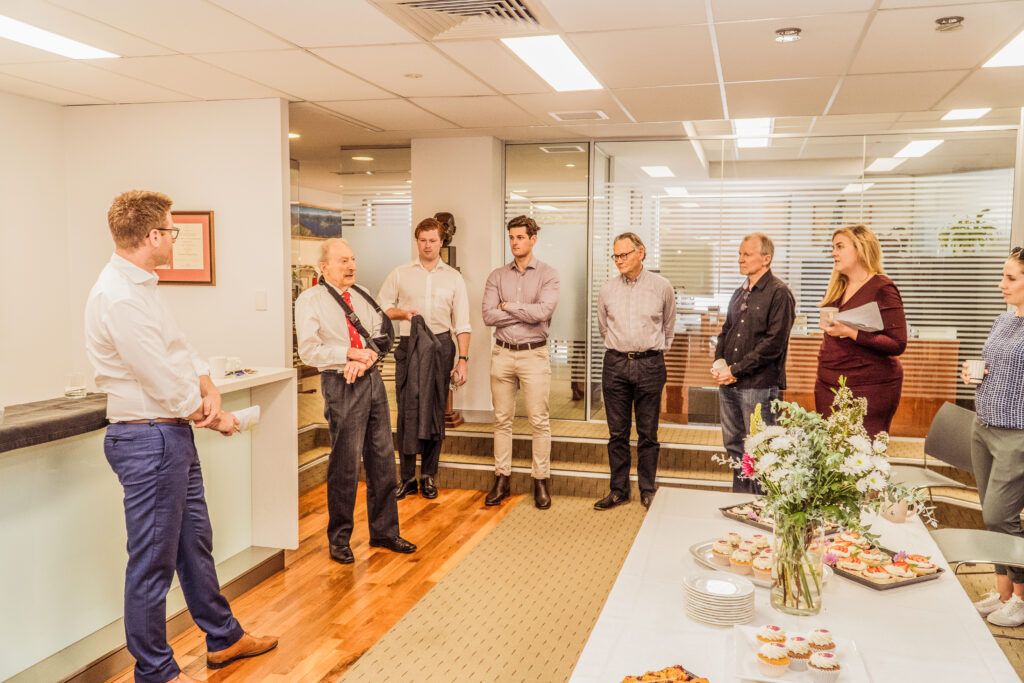
Why does Australia need mining?
Today we are here celebrating National Mining and Related Industries day, a concept born eight years ago, founded by our Executive Chairman and a Mannkal supporter, Mrs Gina Rinehart. This year, given COVID-19 restrictions, we have instigated these “Mates for Mining” morning teas, where groups/companies can come together to celebrate the contribution of the mining industry and importantly the other industries it supports to the nation, particularly during this very challenging time.
I wanted to give my thanks to Mrs Rinehart who has kept her exploration tenements and mines open during the pandemic to the men and women working in the mines or running the drill rigs who have spent months away from their families and loved ones to keep the mines going and to keep the nation going. This has been an enormous sacrifice by them, and it was an important sacrifice given the importance of mining to the Australian economy.
Recently, I have had an opportunity to look through some research work Roy Hill has undertaken in collaboration with the Institute of Public Affairs (IPA). The research quantifies the importance of the mining industry and the impact that all types of government tape is having on the industry.
To summarise the key points raised by the IPA research, mining:
- drives employment (the mining sector has had the largest employment growth in Australia which in turn has helped us weather two crises: COVID-19 and GFC);
- provides a substantial number of jobs in regional towns;
- is Australia’s largest export industry improving our trade balance;
- accounts for 30 percent of investment; and
- generates significant government revenue (in 2017 $185-billion dollars of royalties and taxes were paid – approximately 2.3 times the total of federal and state governments’ education budgets).
The IPA report succinctly reveals the economic and social chasms that would need to be filled by other industries if we did not have the mining sector.
However, the Pilbara mining companies have mined their best deposits. The deposits that are left to develop are more marginal than the deposits of the past either because they are in difficult terrain, isolated from infrastructure, declining in grades (with increasing impurities) or are not as large. These deposits are more sensitive to costs than the deposits of the past and mining companies will not approve them to be developed if they become too costly. Further, as discussed by our Executive Chairman, other countries are looking at their own low-cost iron ore projects or improving the competitiveness of their current iron ore projects. Given these two competing factors – Australia’s future as a leading miner is not guaranteed.
Luckily, within the sector lie engineers and project developers, innovative and agile professionals who must adapt to geographical constraints and to orebodies. These professionals have no control over the location or composition of reserves –all they can do is provide creative solutions. I have found engineers are excellent at this. Some examples include:
- South African engineers halving the cost to lay railway track.
- Australian processing engineers developing highly mobile wet processing plants to replace fixed ones. Such plants greatly reduce earthworks requirements.
- Queensland engineers mobilising conveyor designers.
- Metallurgists assessing new, higher yielding processing technologies.
- Improvements in the cost of solar farms to the point they are now cost competitive with other power solutions. This may solve the existing limited access to power lines and gas pipelines in the Pilbara.
Engineers, geologists, metallurgists and the entrepreneurs who fund them are taking risks to innovate and help get the deposits out of the ground. The viability of new projects is improving as a result.
This bold risk taking and innovation is being met head on by regulatory barriers. At times it feels as if we are in a leaky boat where engineers are feverishly pumping the water out, only to see regulators pumping the water back in.
A recent productivity commission report on regulation in the mining industry echoes this sentiment. The report cites evidence regulatory processes are too complex, often duplicative, filled with uncertainty and lengthy delays. Concerningly, the report notes these barriers may be worsening. The commission found sufficient qualitative evidence of unnecessary costs within the regulatory process. From my own experience I can attest that these sentiments are very real. Regulation is making mining in Australia more and more expensive in a situation where Australia is at risk of losing its competitive edge as global miner.
The IPA, today’s initiative, National Mining and Related Industries Day and the ongoing dedicated work driven by our Executive Chairman, Mrs Gina Rinehart set out the critical need for mining in our economy. But as discussed these are not given by any stretch of the imagination. Our entrepreneurs, engineers and geologists are doing their bit in terms of creative solutions. We really need the government to come to the table, as these projects won’t get built and we won’t have as many jobs in five years’ time.
Tiggy Rogers
Principal Study, Roy Hill
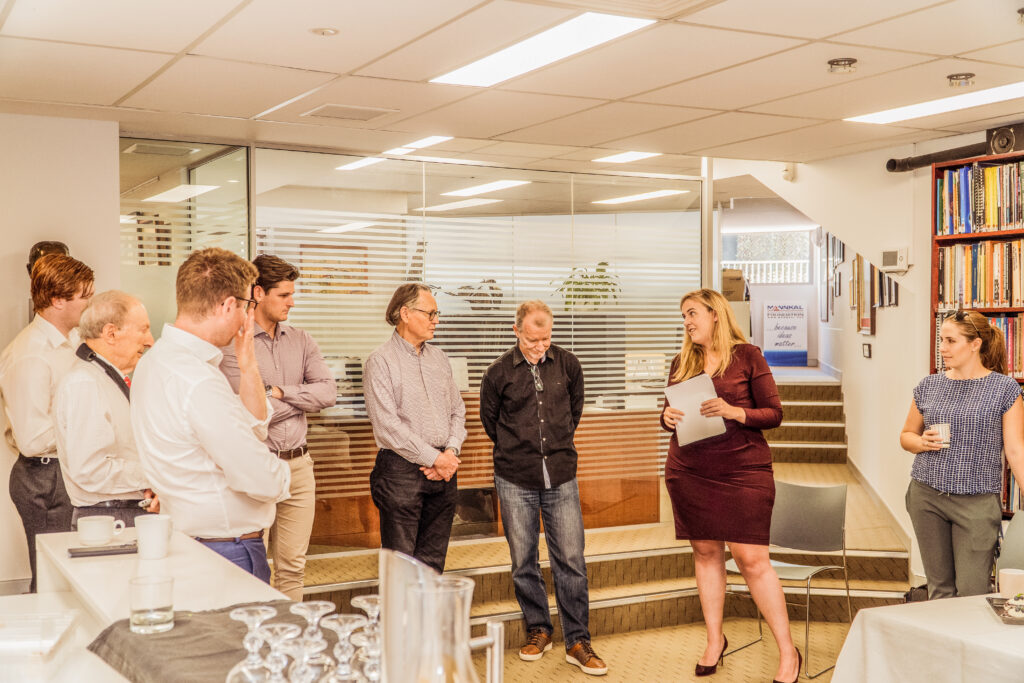
Thoughts from a 2020 LDP Alumnus
“I hear and I forget. I see and I remember. I do and I understand.” Words spoken by Confucius around 2,500 years ago, and words that remain true today.
Throughout my time in the LDP I have done a lot of learning: some by listening, some by viewing, and some by doing. My cohort’s final assignment as part of the LDP will involve assisting in the facilitation of a visit to Kalgoorlie for Mannkal’s summer intensive program. This trip will firmly fall in the “doing” category, both for the outgoing LDP group and our incoming summer students.
It is not the first time we have been subjected to a practical “classroom”. Our earlier Busselton trip exposed the cohort to practical training in resilience and teamwork. Anecdotally, the trip was the most impactful experience of the program. However, the trip to Kalgoorlie – the spiritual home of WA’s mining industry – will have a different focus.
A tour of a mine site and Kalgoorlie’s infamous historic establishments, as well as lessons on economics, liberty and the role of government, will give participants a hands-on, immersive understanding of WA’s entrepreneurial and mining history. Evenings at local pubs will provide an equally immersive understanding of 21st century liberties.
The importance of innovation, entrepreneurialism and mining to WA’s prosperity and security cannot be understated. Kalgoorlie was the birthplace of this spirit. The trip will be my cohort’s LDP capstone and it will signify the end of our formal involvement with LDP activities. In Kalgoorlie, we will pass the torch of freedom to a new group. We have no doubt they will advance the liberty movement with class.
Shane Herbst
2020 Leadership Development Program Scholar
